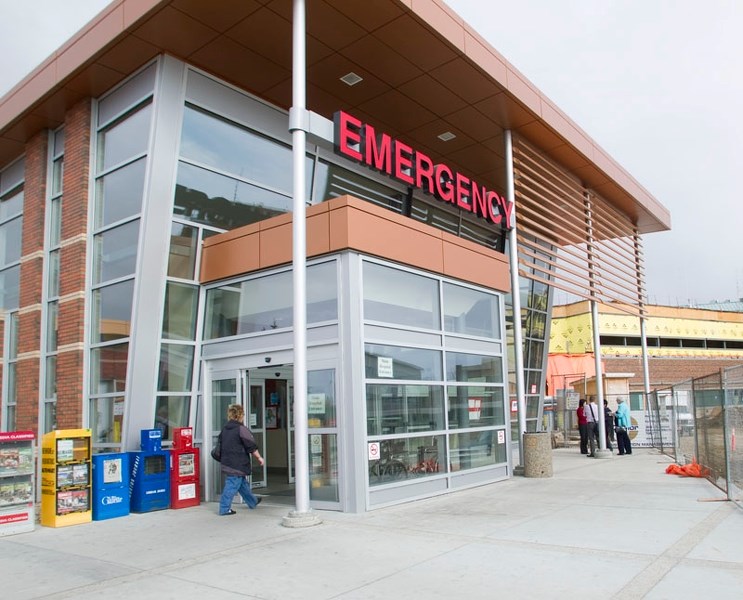Emergency departments across the region are filled with coughs, sneezes and fever. Flu season has arrived and, for lack of taking precautions, flu patients are filling up hospital beds once again.
Chris Sikora, medical officer of health for Alberta Health Services in the Edmonton Zone, said immunization rates across Alberta and in Edmonton are poor.
Only one in eight people got a flu shot since immunization clinics opened in the fall. That comes to about 12 per cent of the population.
While these rates are similar to previous years, Sikora said the virus hit a little earlier this year.
Emergency rooms in the Edmonton region are seeing an increase in patients with respiratory problems, coughs, fevers and other seasonal illnesses, such as gastro-intestinal infections.
Sikora said some long-term care facilities experiencing influenza outbreaks will not accept new patients for fear of infection.
In return, hospitals in the region are reaching capacity, and their rooms are over-crowded.
“I can’t ethically transfer someone into a facility that has an outbreak. Why would I put them at risk? That’s not right, so they have to stay at the hospital until we get the outbreak controlled and cleared,” Sikora said.
He added that he knows of at least one elective surgery that had to be postponed due to capacity issues.
Officially, only 1,000 cases of influenza were diagnosed in Alberta. But Sikora said Edmonton zone emergency rooms see about 700 people with influenza-like symptoms per week.
He said he thinks the number of actual influenza cases in the province is about 10,000.
The groups most at risk from the flu are those over 65 years of age, young children and pregnant women.
Sikora said health officials noticed that more elderly people took the vaccine this year compared to the younger population, though he cannot say why.
“People forget that influenza is not a benign disease. It is quite serious. Every year, we have about 400 deaths from influenza across Canada,” he said.
And the problem is not only in the general population – health-care workers are also not taking the vaccine.
“If you care for people who are medically fragile, you yourself should be protected so that you won’t get sick and transfer it to your patient,” he said.
“It’s a decision every individual has to make to protect themselves, to protect their family and their patients. And I don’t know why that decision doesn’t get made.”
While mass immunization clinics closed at the end of November, people can still get their immunization at public health clinics or through their doctor.
Sikora added that people should stay in shape, have a healthy diet and protect themselves and others from transmitting the disease by washing their hands, coughing in their sleeves and staying at home when sick.
Many people are able to manage the illness at home, he said. He advises calling a doctor or Alberta Health Link when experiencing shortness of breath, dizziness, chest pain or difficulty breathing.
In these cases, a trip to the emergency department may become necessary and Sikora said people can trust that they will be assessed and taken care of properly.




